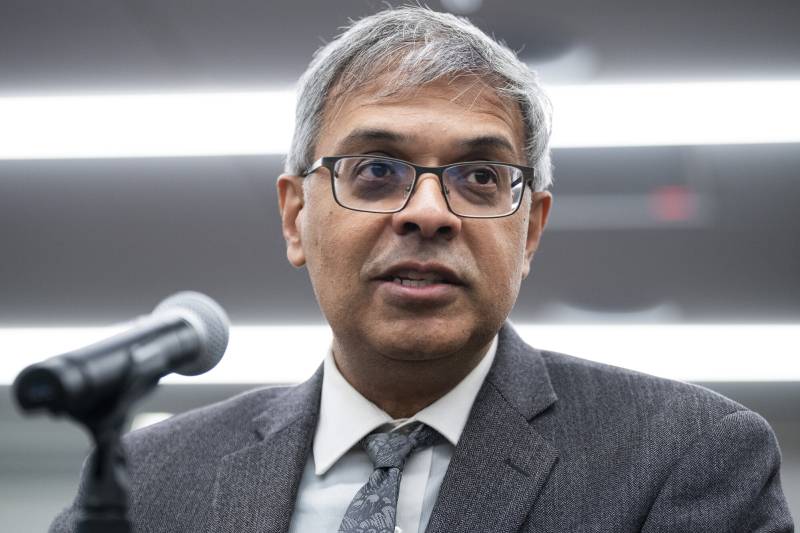President-elect Donald Trump’s choice this week to lead the National Institutes of Health is a controversial Stanford researcher who was highly critical of the COVID-19 pandemic response, drawing pushback from the medical community and some still suffering from the long-term effects of the disease.
Dr. Jay Bhattacharya, a professor of health policy and senior fellow at the Stanford Institute for Economic Policy Research, was one of three co-authors of a 2020 letter that challenged policies like lockdowns and mask mandates and called for speeding up herd immunity.
The so-called Great Barrington Declaration, which was written before the widespread availability of a vaccine, argued that measures should be taken to protect those who were most vulnerable to dying of COVID-19 but that others “should immediately be allowed to resume life as normal.” Allowing the virus to spread among younger, healthier people would help drive up natural immunity and “minimize mortality and social harm,” it said.
The strategy was brought to the attention of then-President Trump by his pandemic adviser, Dr. Scott Atlas — a Stanford colleague of Bhattacharya and Hoover Institution fellow — but the scientific community swiftly excoriated it. Dr. Anthony Fauci, director of the National Institute of Allergy and Infectious Diseases, dismissed it as “total nonsense,” and many physicians, scientists and other experts said the “fringe” approach was unethical and would endanger millions of people.
“Hearing from researchers who were pushing ideas for how a health department should be responding, when they themselves were not responding or seeing patients — to me, I was like, you guys have major gaps in what expertise you’re bringing to the kind of things you’re putting forward,” said Dr. Abraar Karaan, a Stanford infectious-diseases physician who helped lead Massachusetts’ COVID-19 response.


